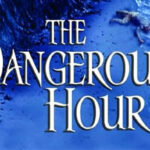Home »

Kimberley RCMP noticing IRP ripple effect
A large stone called tougher drinking and driving laws was dropped in B.C. society’s pool last winter and the resulting ripple effect is having a positive effect in terms of public safety.
That was part of the message being delivered to City of Kimberley council August 22 in Kimberley RCMP detachment Sgt. Laurie Jalbert’s second quarter report (April to June).
Just as the City of Cranbrook heard the week before in their RCMP detachment report, Kimberley council learned that the legal impairment limit change (.08 to .06) and the Immediate Roadside Prohibition (IRP) program is causing a reduction in the number of impaired drivers on the roads.
It’s not just the 90-day seizure of your vehicle and suspension from driving that is making people wake up, Jalbert noted.
“A 90-day IRP costs you a minimum of $5,000,” she said, noting most people can’t afford such a stiff penalty, and the word is getting out to residents, passed along by those who have been stung with an IRP.
“The ripple effect we are seeing” is making people be more careful, Jalbert said.
“It’s still much cheaper to take a cab,” she advised.
In other matters from the quarterly report, Jalbert told council numbers across the board of incidents covered by the detachment officers remain consistent.
Thefts from vehicles continue to be of the “easy” variety, she said. “They are crimes of opportunity where someone is going along and lifting door knobs.”
Jalbert advised that people need to keep their vehicles locked, or at least keep valuables out of your vehicle if you don’t want to lock it. Or you will be the most likely victim of an easy snatch and grab crime.
There may become an increase in the number of drug busts in Kimberley and area, Jalbert told council. “We have one corporal, in particular, who has made it (drug crime) his focus, which is good,” she said.
Kimberley’s lengthy and ‘at-first-glance’ sometimes baffling speed zones also continue to create lots of work for the city’s detachment.
“We’re still seeing lots of speeders. A good majority are just barely speeding, but they are still speeding,” Jalbert said, pointing out the Marysville and Meadowbrook sections of road (ftp://ftp.rdek.bc.ca/NewMaps/RoadNetworkmaps/Meadobrook_RN.pdf) leading in and out of town along Highway 95a as hot spots for speeders.
Coun. Paddy Weston said she finds the Meadowbrook strip (north on Highway 95a) as a tough section to traverse and obey the law. “That is a long way at 60 km/h and a long way at 80 km/h,” she said.
“We still get lots of complaints about people speeding out there,” Jalbert replied, noting there is also a school zone in effect. “People are starting to wake up, but I still see lots of it.”
Jalbert also informed council that the auxiliary officers’ bike patrols are working nicely.
Auxiliary constables (AC) are put through an intensive one-week bike policing course, she said, explaining that ACs, who are volunteers, get the course and do the bike patrols instead of regular members because they tend to remain in communities for the long haul, whereas regular officers come and go.
“It’s police tactics on bicycles,” Jalbert said, noting the extensive range of fitness and riding skill required, as well tactics, where police can swoop in on a scene silently and quickly.
“They (ACs) put in a phenomenal amount of time and are they are really dedicated,” Jalbert said.
Ian Cobb/e-KNOW







